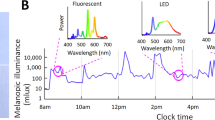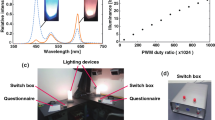Abstract
DURING the past two years we have been making an investigation of dark adaptation of the central region of the retina with special reference to the recovery occurring during the first minute after the end of light adaptation. The work has included some experiments on the effect of doses of potassium bromide and of caffeine on the subject. With doses of potassium bromide up to 25 grains no effect on the rate of adaptation or on the scatter of the observations was observed. With one subject who was used to drinking strong coffee and tea frequently no effect was produced with a dose of 8 grains of caffeine. With another subject whose consumption of tea and coffee may be regarded as at least average, a definite, though rather small, increase in the rate of adaptation was noted when doses of caffeine of up to ten grains were given. The increase was appreciable with 6 grains. In view of these results it is not surprising that at no time were we able to observe any effect due to fatigue or to minor ill-health.
This is a preview of subscription content, access via your institution
Access options
Subscribe to this journal
Receive 51 print issues and online access
$199.00 per year
only $3.90 per issue
Buy this article
- Purchase on Springer Link
- Instant access to full article PDF
Prices may be subject to local taxes which are calculated during checkout
Similar content being viewed by others
References
NATURE, 147, 474 (1941).
Science, 98, 21 (1941).
Author information
Authors and Affiliations
Rights and permissions
About this article
Cite this article
DITCHBURN, R., STEELE, E. Effect of Caffeine and Bromide on Dark Adaptation. Nature 147, 745–746 (1941). https://doi.org/10.1038/147745c0
Issue Date:
DOI: https://doi.org/10.1038/147745c0
This article is cited by
-
Beeinflussung der Dunkeladaptation
Klinische Wochenschrift (1947)
Comments
By submitting a comment you agree to abide by our Terms and Community Guidelines. If you find something abusive or that does not comply with our terms or guidelines please flag it as inappropriate.



